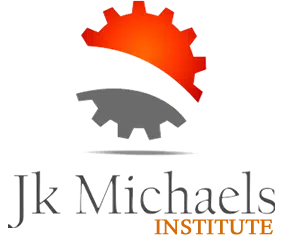Technical Skills for Business Analyst
Technical Skills Every Business Analyst Should Master
Technical Skills for Business Analyst will be discussed in this article. Business analysts are accountable for helping organisations optimise their processes and make better data-driven decisions. To be effective in this role, you must have a strong foundation of technical skills. These skills help you understand and analyse complex data, identify areas for improvement, and communicate effectively with stakeholders. This article will explore the critical technical skills of business analysts and why they are so crucial for success in this field.
Data Analysis
One of the vital technical abilities of business analysts is data analysis. You must be able to comprehend and analyse a lot of data and spot trends. And patterns that can inform decision-making. Some critical skills in this area include:
- SQL: Structured Query Language (SQL) is a database programming language that allows you to retrieve, manipulate, and analyse data stored in a database. As a business analyst, you often use SQL to extract data from databases and perform ad-hoc analyses.
- Data Visualisation: Data visualisation is creating charts, graphs, and other graphical representations of data to make it easier to understand. Business analysts use data visualisation tools to present concise data and communicate insights and findings to stakeholders.
- Predictive Analytics: Predictive analytics involves using statistical models and algorithms to predict future events based on historical data. Business analysts can use predictive analytics to identify trends, make forecasts, and inform decision-making.
Process Improvement
Another critical technical skill for business analysts is process improvement. It involves understanding how organisations work, identifying improvement areas, and recommending processes and systems changes. Some critical skills in this area include:
· Six Sigma: Six Sigma is a methodology for improving business processes and reducing defects. As a business analyst, you might use the tools and methods of Six Sigma to look at processes and find ways to improve them.
- Lean: Lean is a philosophy for reducing waste and improving efficiency in business processes. Business analysts use Lean principles to streamline processes, reduce costs, and improve customer satisfaction.
- BPMN is a standard for business process modelling and notation modelling. Business analysts use BPMN to create visual representations of processes, communicate with stakeholders, and improve process efficiency.
Project Management
Another important technical skill for business analysts is project management. You have to plan and run projects well and ensure they are done on time and within budget. Some critical skills in this area include:
- Agile: Agile is a project management methodology emphasising flexibility and collaboration. Business analysts use Agile methodologies to manage projects and respond to changing requirements.
- Scrum: Scrum is a framework for managing Agile projects, particularly software development projects. Business analysts use Scrum to manage projects, prioritise tasks, and ensure that projects are completed on time.
- PMP: Project Management Professional (PMP) certification for project managers. Business analysts can earn this certification to demonstrate their project management expertise and improve their career prospects.
Conclusion:
The technical skills of business analysts are critical for success in this field. Whether you are analysing data, improving processes, or managing projects, these skills help you make better decisions, communicate effectively, and achieve your goals. By developing these skills, you can become a valuable asset to your organisation and advance your career as a business analyst.
JK Michaels Institute offers other courses, posts, Business Analysis Certification|Video, Business Analyst in Project Management, WHAT IS BUSINESS ANALYSIS?| A KEY ROLE FOR BUSINESS I.T EFFICIENCY. Business Analysis and Business Analyst Job Description.


